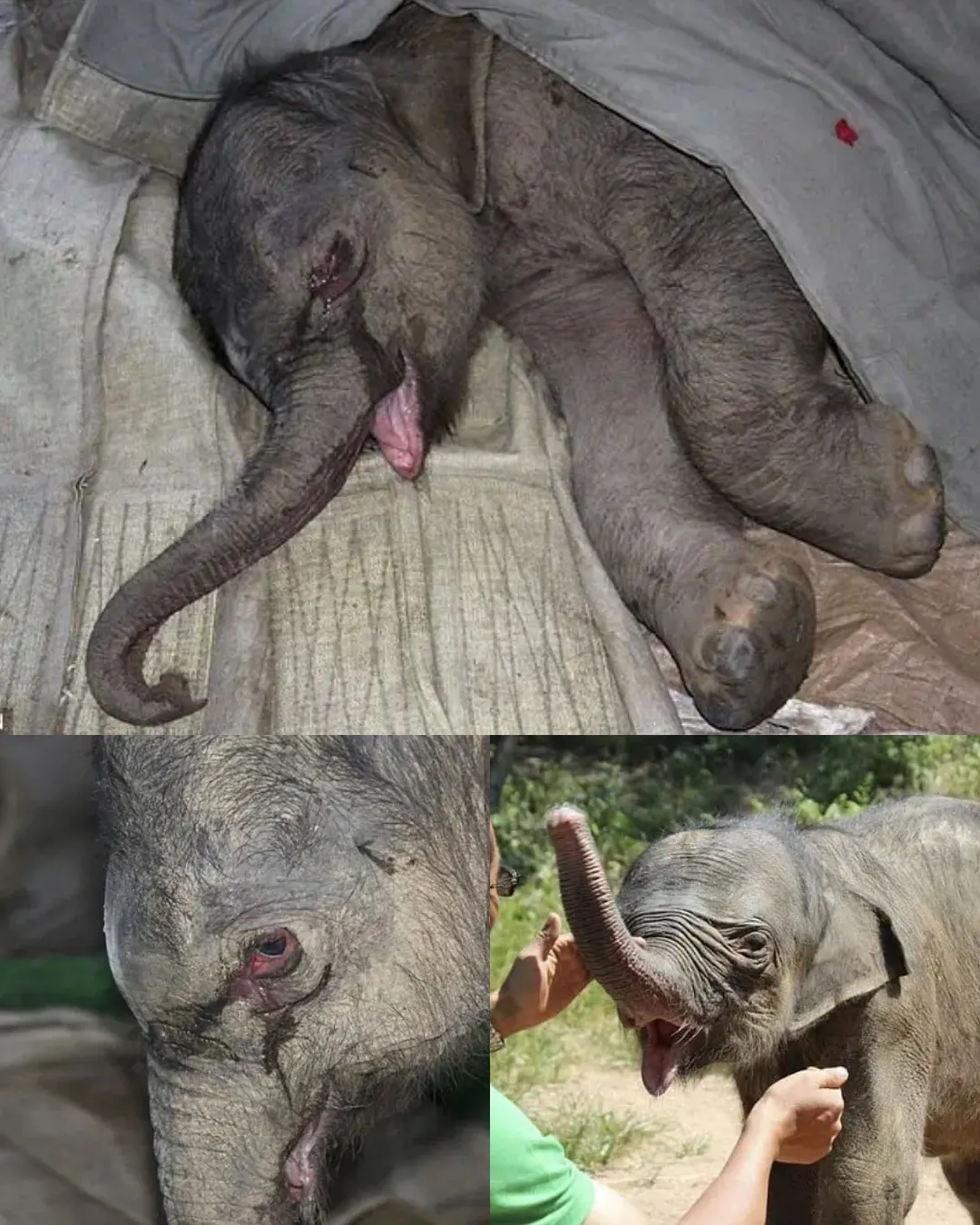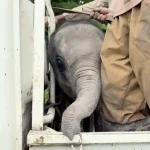The Elephant Who Refused to Give Up: Zhuang Zhuang’s Three-Day Battle in the Mud
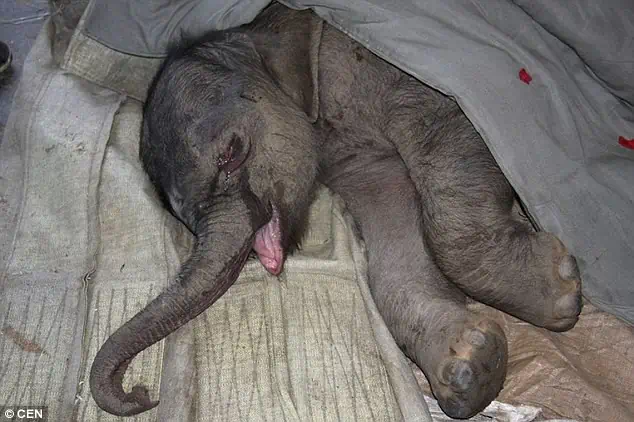
In May, at the Shendiaoshan Wildlife Sanctuary in Rongcheng, China, a moment that should have been pure joy turned into heartbreak. A female elephant gave birth to a calf, a moment usually celebrated as a symbol of new life. But almost immediately, tragedy struck.
Instead of nurturing her newborn, the mother lashed out—kicking and even throwing the calf in a frenzy. Keepers rushed in, horrified, and separated the fragile baby to save his life. They named him Zhuang Zhuang.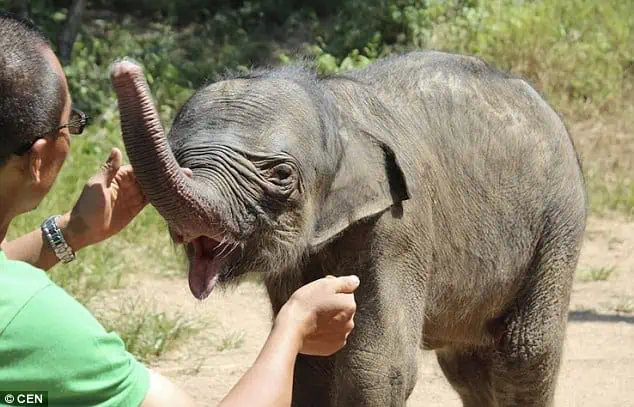
Though rescued, the little elephant couldn’t bear the loss. For hours, his cries echoed through the sanctuary. He trembled, reached out with his tiny trunk, and lay on the ground in despair, searching for a mother who had rejected him. A keeper recalled through tears: “The calf went crazy. He cried and cried. He just couldn’t bear to leave his mother.”
Meanwhile, the mother elephant herself refused to eat. Withdrawn and unresponsive, she appeared to suffer from something akin to postpartum depression. Her attack, though shocking, may have been rooted in her own mental turmoil.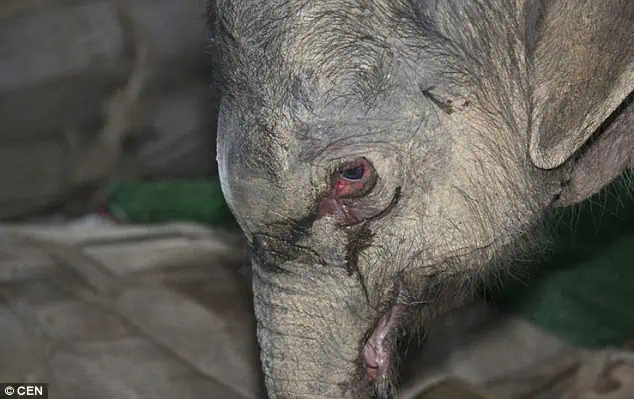
Caretakers stepped in, wrapping Zhuang Zhuang in blankets, feeding him, and staying by his side. Still, for days he cried into the night, his grief visible to all. Scientists debated whether elephants shed emotional tears, but what was undeniable was their emotional depth—elephants mourn their dead, comfort one another, and form lifelong bonds.
And so, the world could not dismiss Zhuang Zhuang’s tears as mere biology. They were grief—raw, unfiltered, and profoundly human-like. His images spread across the internet, touching millions. People saw in him the innocence of a child, the desperate longing to be loved.
Gradually, under the patient care of his keepers, Zhuang Zhuang began to heal. He played clumsily, discovered moments of joy, and found comfort in his human family. What began as rejection became a story of resilience.
Zhuang Zhuang’s survival raises questions that echo far beyond his story: Can animals suffer depression? How deep is their emotional world? And what responsibilities do we carry in recognizing their capacity to feel?
For the keepers, the answer was simple—love and compassion saved him. They became his family, guiding him from sorrow into hope.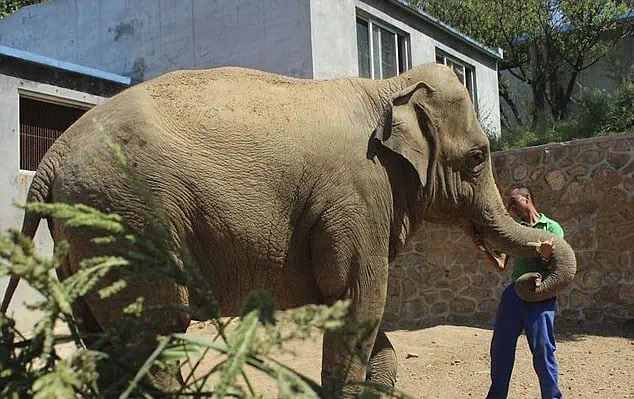
In the end, Zhuang Zhuang’s story is more than that of a baby elephant. It is a testament to the universal power of love, a reminder that even in rejection and despair, healing is possible. His tears told the world a truth we cannot ignore: every living being longs to be seen, to be cared for, to be loved.
Would you like me to make this piece more like a news-style feature (informative, factual) or like an emotional storytelling article (deeply moving, almost like a short essay)?